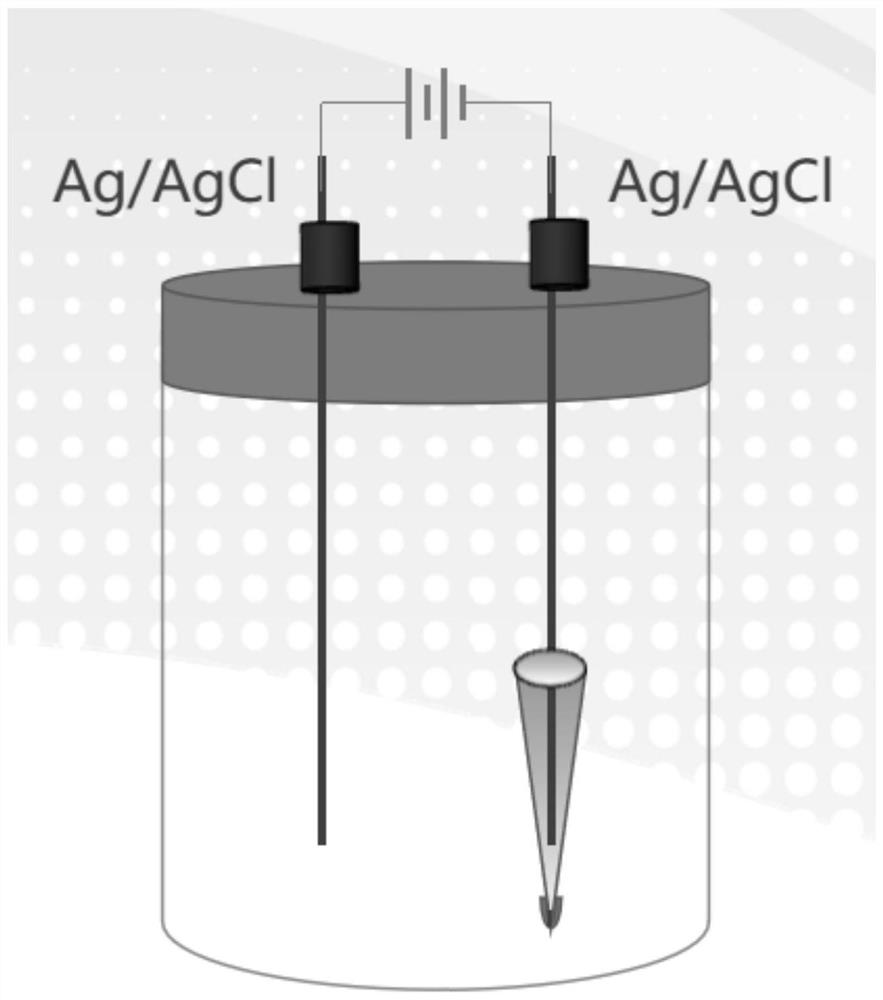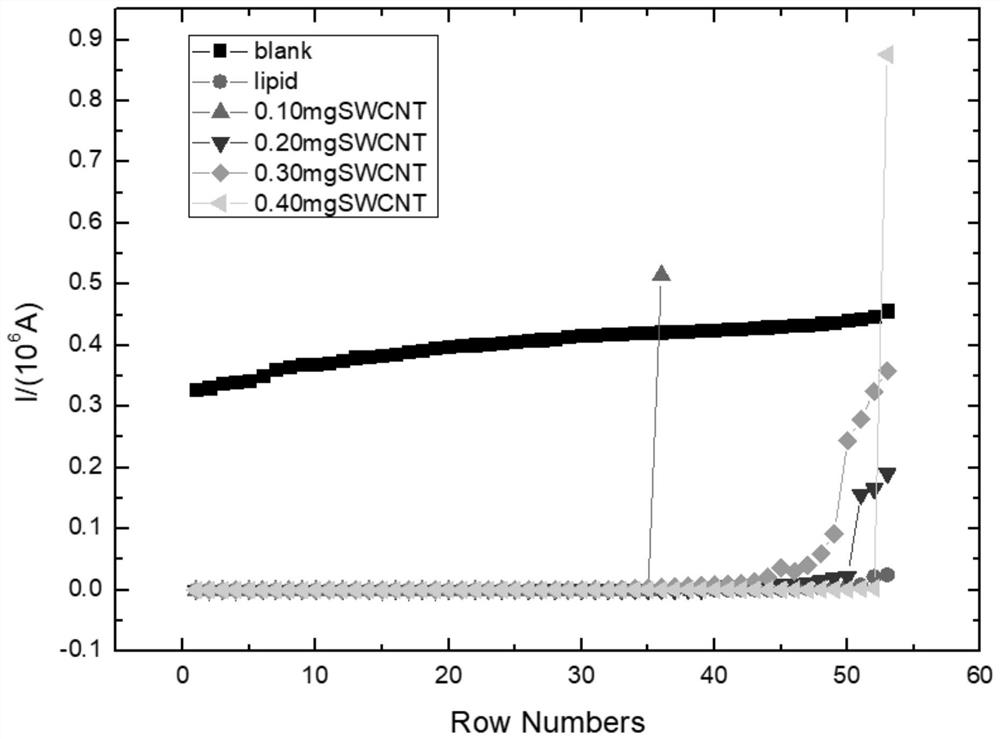Preparation of Composite Glass Nanopores and Its Application to Biomolecular Detection
A technology of nano-channels and composite glass, which is applied in nano-medicine, nano-technology, nano-technology, etc., can solve the problems of high cost, complex detection instruments, and unfavorable popularization. Effect
- Summary
- Abstract
- Description
- Claims
- Application Information
AI Technical Summary
Problems solved by technology
Method used
Image
Examples
Embodiment Construction
[0036] In order to make the object, technical solution and advantages of the present invention clearer, the present invention will be further described in detail below in conjunction with the accompanying drawings.
[0037] Step 1: Prepare glass nanopores; the operation method is as follows:
[0038] ①Take a glass tube whose specification is outer diameter: 1.2mm; inner diameter: 0.6mm; length: 10mm;
[0039] ② Place the glass tube in concentrated sulfuric acid (H 2 SO 4 ), hydrogen peroxide (H 2 o 2 ) mixed solution, ultrasonic for about 15min. Rinse with high-purity water and ethanol, and then place it in high-purity water for later use;
[0040]③Clamp out the cleaned glass tube with tweezers, rinse it with ethanol, and dry it with nitrogen, and set it aside;
[0041] ④Then draw the glass tube into a glass nanochannel with a suitable pore size on a glass tube drawing machine with certain parameters (the parameters are shown in Table 1 above). The nanopore size obtained...
PUM
| Property | Measurement | Unit |
|---|---|---|
| diameter | aaaaa | aaaaa |
| length | aaaaa | aaaaa |
| diameter | aaaaa | aaaaa |
Abstract
Description
Claims
Application Information
 Login to View More
Login to View More - R&D
- Intellectual Property
- Life Sciences
- Materials
- Tech Scout
- Unparalleled Data Quality
- Higher Quality Content
- 60% Fewer Hallucinations
Browse by: Latest US Patents, China's latest patents, Technical Efficacy Thesaurus, Application Domain, Technology Topic, Popular Technical Reports.
© 2025 PatSnap. All rights reserved.Legal|Privacy policy|Modern Slavery Act Transparency Statement|Sitemap|About US| Contact US: help@patsnap.com



